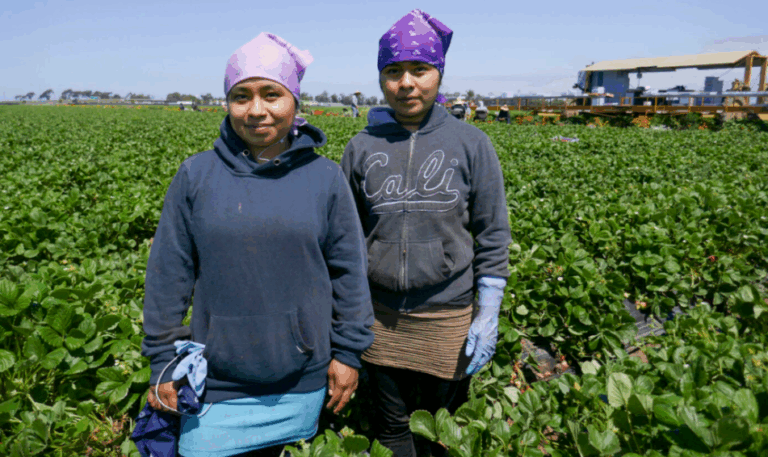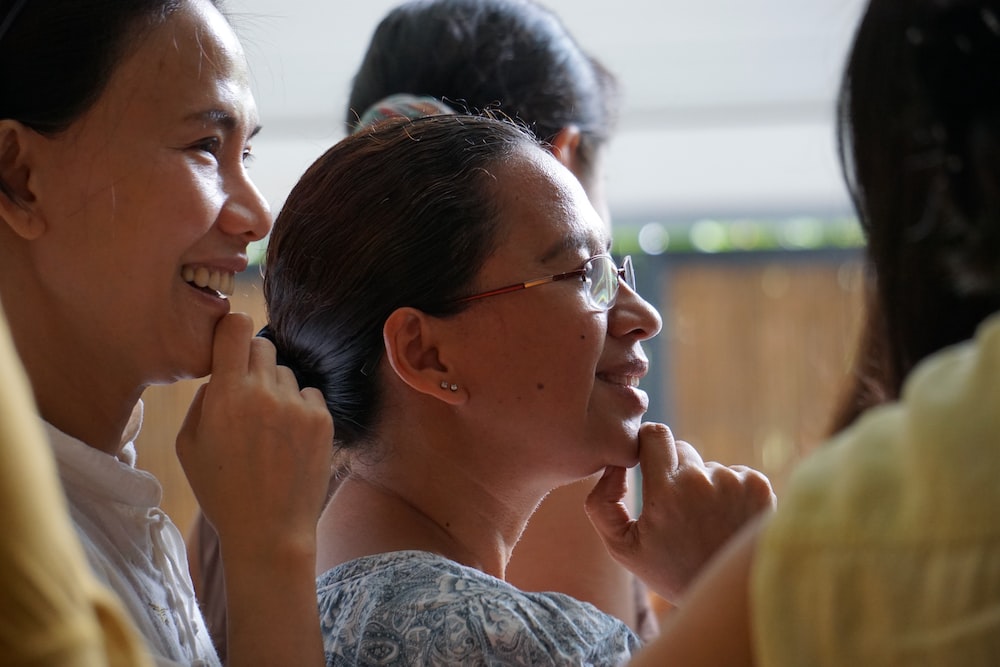
Welcoming New Americans by Prioritizing Lived Experience, Cultural Humility, and Competency
The Power of a Warm Welcome
Navigating life in a new country is challenging at best, and many immigrants come to the US without any lifelines to support them as they attempt to navigate their new surroundings. At Cell-Ed, we believe cultural humility and competency are at the heart of welcoming New Americans. That’s why we go the extra mile to ensure our micro-learning lessons are designed specifically with our diverse learner population in mind, to aspire to meet more lived experiences of those we serve.
What does that mean? If you have recently arrived from Afghanistan, Ukraine, or countless other places, the goal is for your warm welcome lessons to be meaningful to you. This attention to detail not only improves the user experience exponentially, but allows learners to set their own goals and move through the program path without added difficulties or distraction.
Culturally Relevant Content
Although cultural diversity in the US is staggering, we’re committed to producing culturally relevant content for our diverse populations. We also recognize that the best way to address these nuances is through people with shared lived experiences.
Cell-Ed is deeply grateful to have an abundance of talented team members who bring their wisdom, breadth, and depth of lived experiences to design culturally relevant content for our micro-learning platform. Today, we’re shining the spotlight on five of our extraordinary teammates.
We’re proud to introduce:
Ella | Ukraine
Over 20 years ago, Ella left Ukraine to study abroad here in the US. Her journey began in Pennsylvania, where she fell in love with international education. She later went on to earn an MA in Linguistics at Ohio University. Ella now considers the US her second home, but settling here wasn’t without its challenges.
“It’s scary to leave home and everything you know. It’s scary to experience new rules, a new culture, a new language. I’m very proud of not letting the fear of the unknown hold me back.”
Ella acknowledges that the US you experience isn’t one you see in the movies. You’ll miss your home country, no matter how well-adjusted you become. But for her, the other side of that coin is the meaningful and long-lasting relationships she built along the way.
As an educator, Ella made it her mission to use her own lived experiences to help others going through similar transitions. She’s spent her entire career working with students in higher education, so when she had the opportunity to join Cell-Ed, she jumped at the chance to serve under-resourced communities. Flexibility and patience have served her well, and she looks forward to helping others build lives in their new country, even if it may take some time.
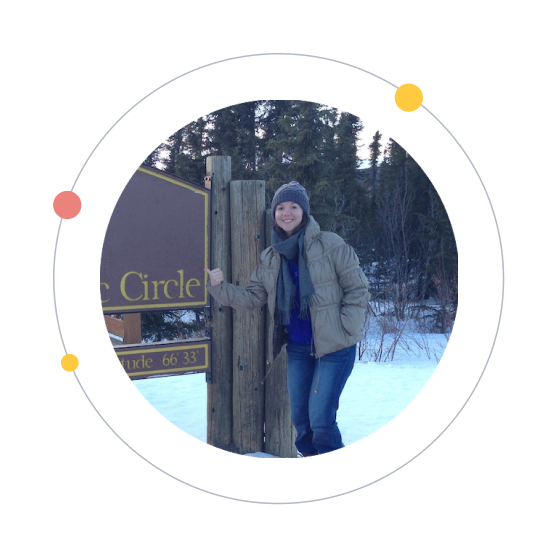

Janet | Ukraine
Janet’s relationship with education began decades ago, when she would pretend to be a teacher with her great-grandmother. Since then, earning an MA in Linguistics and an impressive PhD in Pedagogy, she’s come a long way from playing school.
She’s been teaching languages for over two decades and also worked as a translator and interpreter. After meeting Americans through her work, she began traveling yearly to the US in 2014. But her most recent trip to the US was a bit different. In 2022, Janet fled Ukraine with only her suitcase to make America her permanent home.
“I finally made it. I had to make a tough choice. It took me 9 years, a lot of savings, and an understanding that my life will never be the same again.”
Her love and passion for helping others continues to fuel her professionally. Upon connecting with Cell-Ed, she knew the position was tailor-made for her, as she was well-versed in mobile-learning platforms from her work in Ukraine. Now, Janet proudly uses her knowledge and experience to help others transition into their new lives.
Waheed | Afghanistan
As an Afghan national, Waheed collaborated with American governmental organizations in his home country before moving to the US. His education–a BA in Economics and an MA in International Relations–allowed him to explore different roles in project management, consular management, community outreach, communication and media, refugee resettlement, and translation.
Waheed also had the added advantage of being a polyglot prior to his arrival in the US with fluency in several languages including English, Persian, Dari, and Pashto. But that didn’t mean his transition was seamless.
“Upon arriving in the US, I didn’t have a support structure. Despite not being supported, I leaned on the Afghan community to build relationships.”
He recognizes the US as the land of both opportunity and challenges. Having overcome them himself, he now aims to help people achieve independent and prosperous lives of their own. Waheed has experienced many ups and downs here in the US, and he looks forward to sharing the lessons he’s learned with refugees and immigrants to help them succeed in their new life.
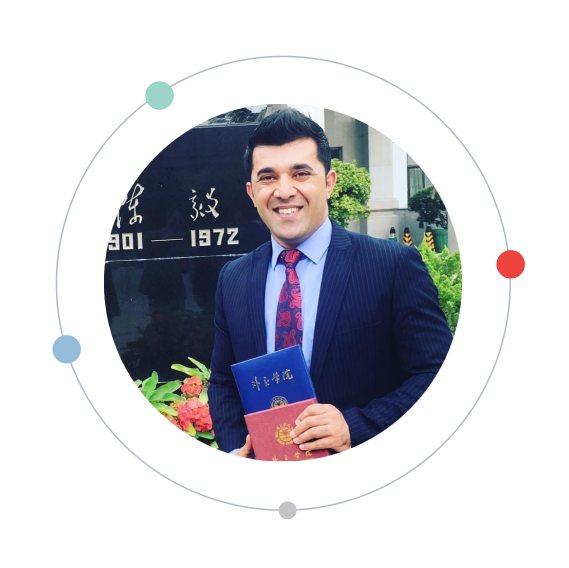

Rahila | Afghanistan
Growing up in Afghanistan, Rahila’s childhood goal was to one day work for the United Nations, as she associated their mission with resilience, adaptability, and cultural development. This vision is a testament to her drive, as she later became an international consultant with the UN’s International Organization for Migration. She speaks six languages and holds a BA in Pashto Literature and a BBA with a focus in Project Management.
When she left her home in Kabul to come to the US as a refugee, she learned how to navigate the complexities of a new country, embracing the challenges, staying true to herself, and maintaining a commitment to personal growth. Rahila’s refugee experience has come full circle in her engagement with Cell-Ed, where she facilitates access to essential services for the Afghan community.
“Serving and helping people makes me happy. Embrace challenges, stay true to yourself, never stop learning and growing, and just keep shining!”
Ngarambe | Rwanda
Ngarambe spent the majority of his childhood in a Rwandan orphanage after both his parents were killed. His fierce resilience pushed him through school and, after graduating college, he began working at a non-profit organization.
Upon immigrating to the US in 2019 with his wife, he felt deeply isolated, due in large part to the language barrier. The pandemic hit not long after their arrival, and Ngarambe’s feelings amplified. But his resilience resurfaced, and he began learning to play guitar and found solace in music.
The challenges Ngarambe faced when first arriving in the US, paired with his previous non-profit experience, made him the ideal Cell-Ed candidate. He now leads Welcome Start–a California-based initiative designed to help Ukrainian and Afghani refugees learn English and work-ready skills while providing access to other resources.
“Learn to help yourself first, be patient, and be authentic. Take every opportunity to learn and participate in the culture and traditions of others so you can make friends and network.”
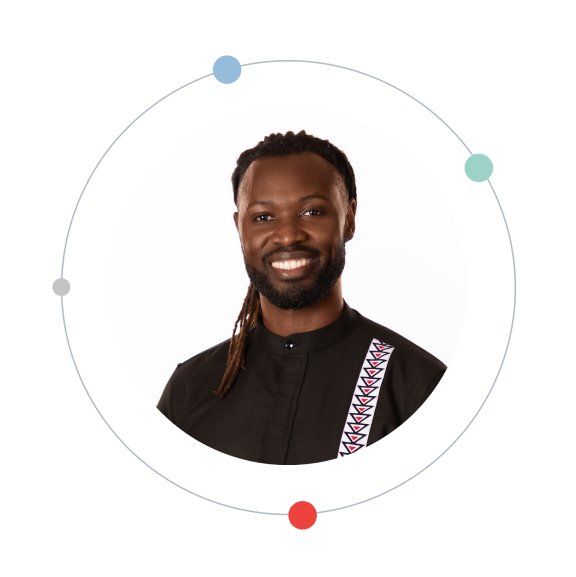
If you’re interested in learning more about Cell-Ed’s culturally competent education programs, click below.

